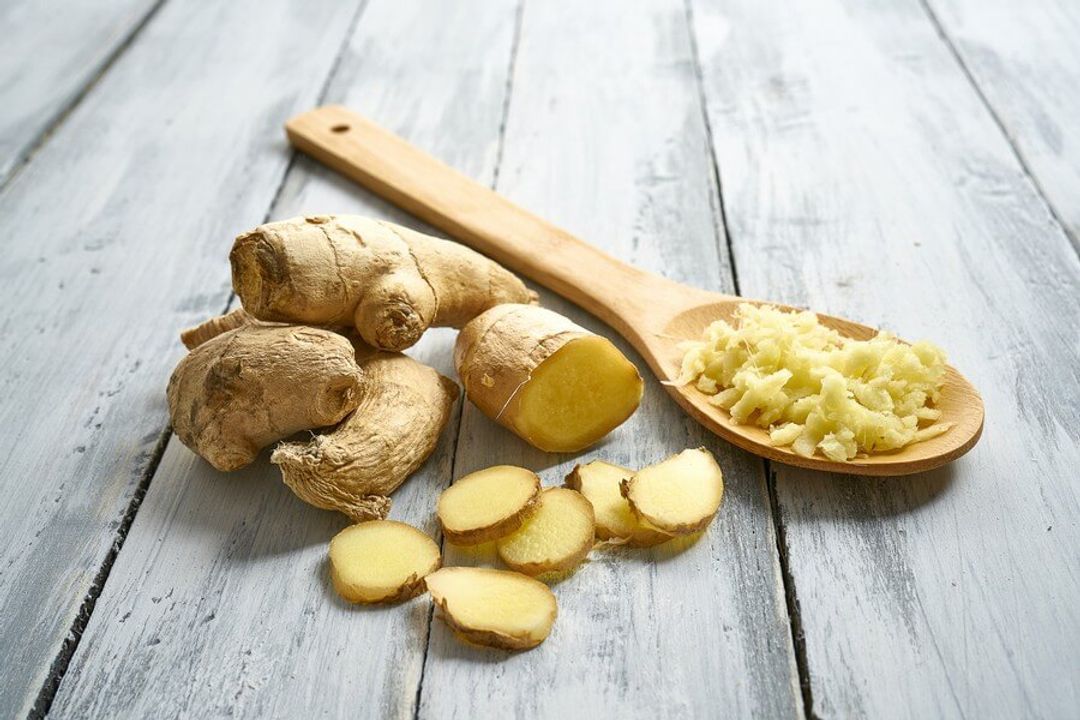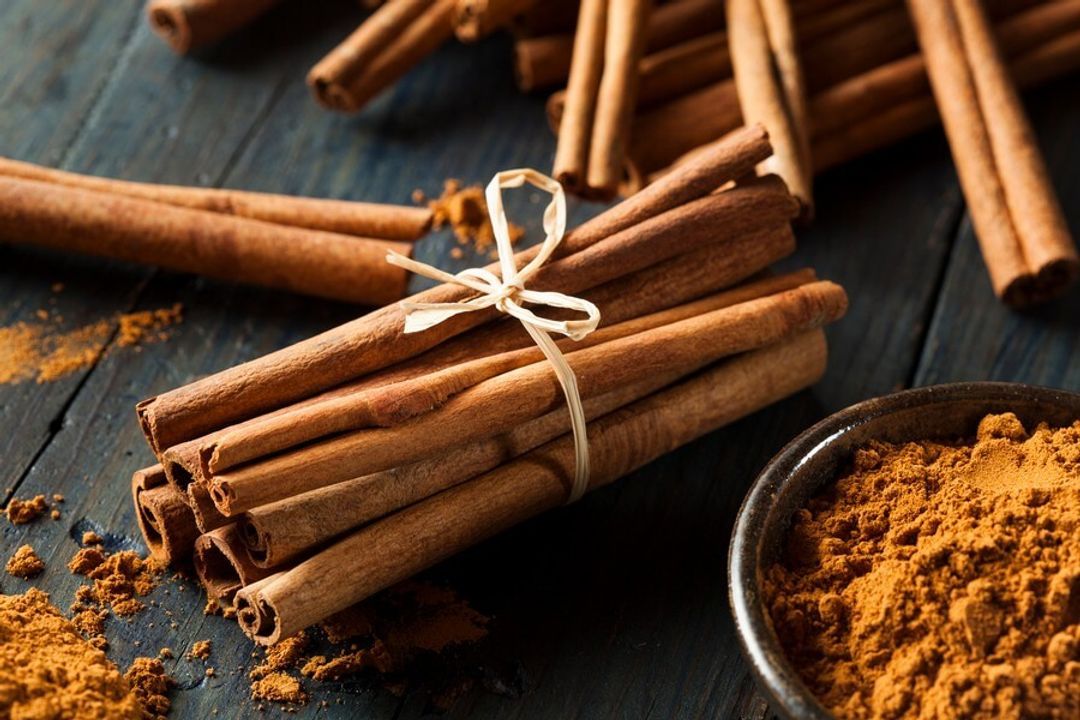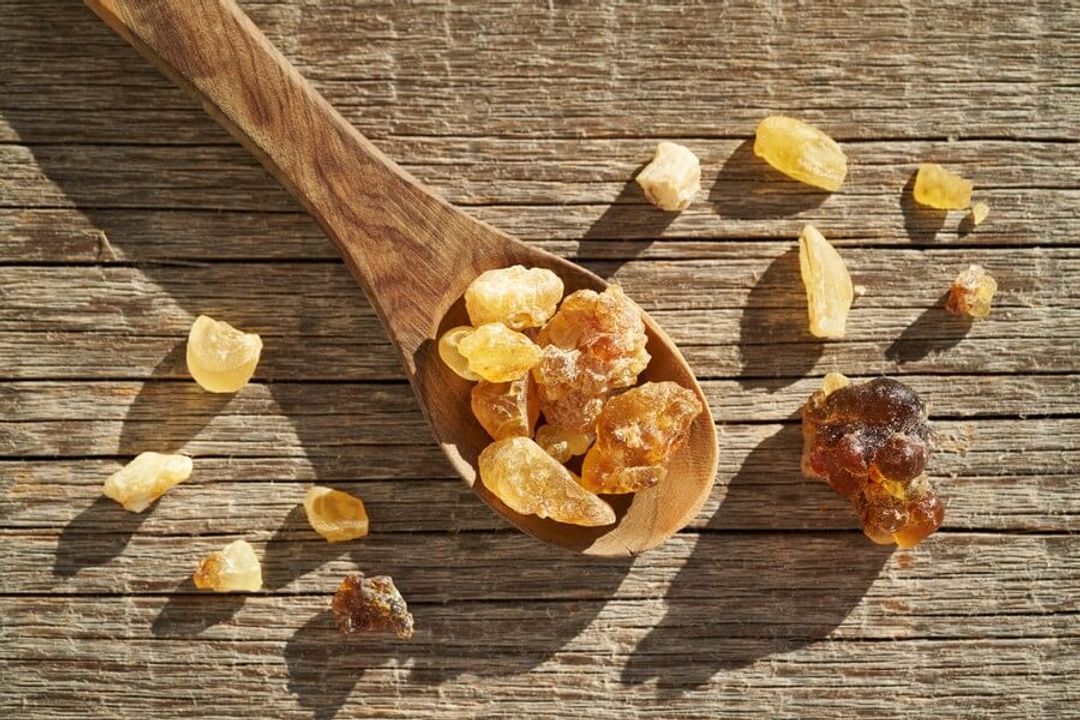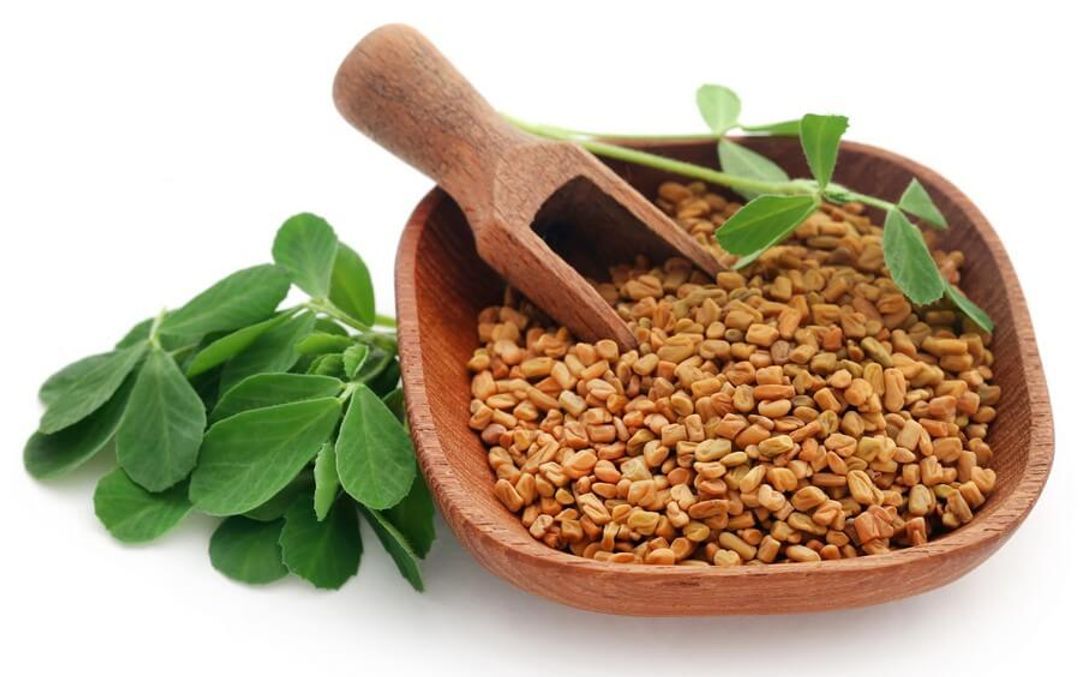The Best Herbs For Inflammation To Improve Your Health
Inflammation is the body's natural response to injury, infection, or irritation, and it can be both helpful and harmful. Acute, short-lived inflammation helps the body heal by promoting blood flow and immune cell activity to the affected area.
However, chronic inflammation, which can persist for months or even years, can contribute to various diseases and conditions, including arthritis, heart disease, and certain cancers.
Many people turn to herbs and natural remedies for inflammation to support the body's natural healing processes and help restore health. If you’re dealing with symptoms of chronic inflammation, consuming anti-inflammatory herbs and spices can help provide effective relief.
This article will explore some of the best anti-inflammatory herbs, their potential benefits, and ways to incorporate them into your daily routine.
Top Anti-Inflammatory Herbs And Spices
Turmeric
 Turmeric is perhaps the most well-known and widely studied herb for its anti-inflammatory properties. The active compound in turmeric, curcumin, has been found to possess potent anti-inflammatory and antioxidant effects.
Turmeric is perhaps the most well-known and widely studied herb for its anti-inflammatory properties. The active compound in turmeric, curcumin, has been found to possess potent anti-inflammatory and antioxidant effects.
Curcumin works by inhibiting the activity of several enzymes and inflammatory molecules, including cyclooxygenase-2 (COX-2), lipoxygenase, and nuclear factor kappa-B (NF-kB) [1].
You can incorporate turmeric into your diet by adding it to curries, soups, or smoothies. You can also take turmeric supplements, available in various forms, such as capsules, tablets, and extracts.
To enhance the absorption of curcumin, combine it with black pepper, which contains piperine, a compound that increases the bioavailability of curcumin by up to 2,000%.
Ginger
 Ginger is one of the most powerful natural anti-inflammatory herbs used for centuries in traditional medicine.
Ginger is one of the most powerful natural anti-inflammatory herbs used for centuries in traditional medicine.
This herb contains several bioactive compounds, including gingerols, shogaols, and zingerone, which have been shown to exert anti-inflammatory and antioxidant effects.
These compounds work by inhibiting the production of pro-inflammatory cytokines and prostaglandins and blocking the activity of COX-2 and 5-lipoxygenase enzymes [2].
You can consume ginger in various forms, such as fresh, dried, powdered, or as an extract. It can be added to teas, smoothies, and cooked dishes or taken as a supplement in capsule or tablet form.
Green Tea
 Green tea is a rich source of polyphenols, particularly epigallocatechin-3-gallate (EGCG), which has potent anti-inflammatory and antioxidant properties.
Green tea is a rich source of polyphenols, particularly epigallocatechin-3-gallate (EGCG), which has potent anti-inflammatory and antioxidant properties.
EGCG has been shown to suppress the production of pro-inflammatory cytokines and inhibit the activation of NF-kB, a key regulator of the inflammatory response, thereby providing benefits for brain, heart, and gastrointestinal health [3].
To enjoy the anti-inflammatory benefits of green tea, aim to drink 3-4 cups daily. You can also take green tea extract supplements, which provide a concentrated source of EGCG.
Garlic
 Known for its strong flavour and numerous health benefits, garlic is a potent anti-inflammatory herb, a widely used culinary ingredient, and has been a part of traditional medicine for centuries.
Known for its strong flavour and numerous health benefits, garlic is a potent anti-inflammatory herb, a widely used culinary ingredient, and has been a part of traditional medicine for centuries.
The active compound in garlic, allicin, has been found to possess anti-inflammatory and antioxidant properties. It inhibits the production of pro-inflammatory cytokines and blocks the activity of enzymes like lipoxygenase and COX-2 [4].
Beyond its anti-inflammatory properties, other benefits of garlic include supporting cardiovascular health, improving immune function, and exhibiting antimicrobial properties.
Incorporate garlic into your daily routine by adding fresh, minced cloves to various dishes. If you prefer to consume garlic in supplement form, you can take it in tablets, capsules, or extracts.
Ashwagandha
 Also known as Indian ginseng or winter cherry, ashwagandha is an adaptogenic herb used in Ayurvedic medicine for thousands of years. Known for its ability to help the body adapt to stress and support overall well-being, ashwagandha has also been found to possess anti-inflammatory properties.
Also known as Indian ginseng or winter cherry, ashwagandha is an adaptogenic herb used in Ayurvedic medicine for thousands of years. Known for its ability to help the body adapt to stress and support overall well-being, ashwagandha has also been found to possess anti-inflammatory properties.
The active compounds in ashwagandha, known as withanolides, have been shown to modulate the immune system's inflammatory response by inhibiting the production of pro-inflammatory cytokines and reducing the activity of nuclear factor-kappa B (NF-kB) [5].
It can also improve the body's resilience to stress, which can help reduce inflammation indirectly, as chronic stress has been linked to increased inflammation.
Ashwagandha can be taken as powder, capsules, tablets, or extracts. Look for a supplement that typically contains between 1-5% of withanolides to ensure consistent potency. The root extract usually contains the highest concentrations.
Cinnamon
 Cinnamon is derived from the bark of trees belonging to the Cinnamomum genus and is available in two main varieties: Ceylon and Cassia.
Cinnamon is derived from the bark of trees belonging to the Cinnamomum genus and is available in two main varieties: Ceylon and Cassia.
The active compounds in cinnamon, such as cinnamaldehyde and various polyphenols, have been shown to inhibit the production of pro-inflammatory cytokines and block the activity of enzymes like COX-2. Additionally, cinnamon has antioxidant properties that help neutralise free radicals, further reducing inflammation in the body [6].
You can sprinkle ground cinnamon on oatmeal, yoghurt, or fruit or add it to smoothies, teas, and coffee for a warming flavour. Cooking and baking with cinnamon is another excellent way to enjoy its anti-inflammatory benefits.
Alternatively, it is available in capsules, tablets, and extracts. When choosing a cinnamon supplement, opt for one made from Ceylon cinnamon, as it contains lower levels of coumarin, a natural compound that can be harmful in large amounts.
Rosemary
 Rosemary is a fragrant herb with several bioactive compounds, including rosmarinic acid, carnosic acid, and carnosol, which possess strong anti-inflammatory and antioxidant properties in conditions including atopic dermatitis, osteoarthritis, asthma, gum disease, and others [7].
Rosemary is a fragrant herb with several bioactive compounds, including rosmarinic acid, carnosic acid, and carnosol, which possess strong anti-inflammatory and antioxidant properties in conditions including atopic dermatitis, osteoarthritis, asthma, gum disease, and others [7].
These compounds work by inhibiting the production of pro-inflammatory cytokines and blocking the activity of COX-2 and lipoxygenase enzymes.
You can use rosemary as a seasoning for meats, vegetables, and sauces. Alternatively, you can take rosemary supplements, which are available in capsule, tablet, and extract forms, or prepare rosemary-infused tea for a soothing and aromatic beverage.
Holy Basil
 Holy basil, or tulsi, is an adaptogenic herb traditionally used to fight viral, bacterial, and fungal infections, combat stress, and promote overall health.
Holy basil, or tulsi, is an adaptogenic herb traditionally used to fight viral, bacterial, and fungal infections, combat stress, and promote overall health.
It contains various bioactive compounds, including eugenol, rosmarinic acid, and ursolic acid, demonstrating anti-inflammatory and antioxidant properties in human studies [8].
You can consume holy basil as tea, made from fresh or dried leaves, or take it as a supplement in capsule or tablet form.
Liquorice Root
 The primary active compound in liquorice, glycyrrhizin, has been shown to possess anti-inflammatory effects by inhibiting the production of pro-inflammatory cytokines and modulating the immune response [9].
The primary active compound in liquorice, glycyrrhizin, has been shown to possess anti-inflammatory effects by inhibiting the production of pro-inflammatory cytokines and modulating the immune response [9].
The herb’s high flavonoid content enhances its anti-inflammatory potential, making it an ideal choice for treating gastrointestinal issues, coughs, and colds.
Liquorice supplements are available in various forms, such as capsules, tablets, and extracts, or you can consume dried liquorice root as a tea. Be cautious when using liquorice, as excessive consumption may lead to side effects, including high blood pressure and low potassium levels.
Boswellia
 Boswellia, also known as Indian frankincense, is a resin derived from the bark of the Boswellia serrata tree. It has been used in Ayurvedic medicine for centuries to treat inflammatory conditions such as arthritis, asthma, and inflammatory bowel disease.
Boswellia, also known as Indian frankincense, is a resin derived from the bark of the Boswellia serrata tree. It has been used in Ayurvedic medicine for centuries to treat inflammatory conditions such as arthritis, asthma, and inflammatory bowel disease.
The active compounds in Boswellia, called boswellic acids, have been shown to inhibit the production of pro-inflammatory enzymes, including 5-lipoxygenase and leukotrienes [10].
Boswellia supplements are available in various forms, such as capsules, tablets, and extracts. To ensure consistent potency, look for products standardised to contain a specific percentage of boswellic acids, typically between 60-65%.
Cat's Claw
 Cat's claw is a woody vine native to the Amazon rainforest and has been traditionally used for its anti-inflammatory and immune-boosting properties.
Cat's claw is a woody vine native to the Amazon rainforest and has been traditionally used for its anti-inflammatory and immune-boosting properties.
The active compounds in cat's claw, including oxindole alkaloids, have been shown to inhibit the production of pro-inflammatory cytokines, including TNF-alpha [11].
You can take cat’s claw in supplement form, including capsules, tablets, and extracts. When using cat's claw, it's essential to choose a product standardised to contain a specific percentage of oxindole alkaloids for consistent potency.
Cayenne Pepper
 Cayenne pepper, a popular spice derived from the dried pods of chilli peppers, is known for its characteristic heat and pungent flavour. Beyond its culinary uses, cayenne pepper has been utilised in traditional medicine for its potential health benefits.
Cayenne pepper, a popular spice derived from the dried pods of chilli peppers, is known for its characteristic heat and pungent flavour. Beyond its culinary uses, cayenne pepper has been utilised in traditional medicine for its potential health benefits.
The active compound responsible for cayenne pepper's anti-inflammatory effects is capsaicin, which has been found to inhibit the production of substance P, a neuropeptide involved in pain and inflammatory processes. Capsaicin has also been shown to block the activity of the enzyme COX-2, reducing inflammation in the body [12].
Add cayenne pepper to dishes to provide a spicy kick and boost of flavour. Start with a small amount and gradually increase it according to your taste preferences and tolerance for heat.
If you prefer a cayenne pepper supplement, look for one that is standardised to contain a specific percentage of capsaicin, usually between 0.1-0.3%, to ensure consistent potency.
Willow Bark
 Willow bark has been used for centuries as a natural remedy for pain and inflammation. It contains salicin, a compound metabolised in the body into salicylic acid, the active ingredient in aspirin.
Willow bark has been used for centuries as a natural remedy for pain and inflammation. It contains salicin, a compound metabolised in the body into salicylic acid, the active ingredient in aspirin.
Salicin has been shown to possess anti-inflammatory properties by inhibiting the production of pro-inflammatory cytokines and blocking the activity of COX-2 enzymes [13].
Willow bark supplements are available in capsule, tablet, or extract form. It's essential to follow the recommended dosage on the product label, as excessive consumption may lead to gastrointestinal upset or bleeding.
Fenugreek
 Fenugreek is native to the Mediterranean region and Asia and has a long history in traditional medicine for its diverse health benefits. The aromatic herb is known for its anti-inflammatory properties, such as improving digestive health and blood sugar control.
Fenugreek is native to the Mediterranean region and Asia and has a long history in traditional medicine for its diverse health benefits. The aromatic herb is known for its anti-inflammatory properties, such as improving digestive health and blood sugar control.
The active compounds in fenugreek, including various alkaloids, saponins, and flavonoids, have demonstrated anti-inflammatory effects by inhibiting the production of pro-inflammatory cytokines and suppressing the activation of nuclear factor-kappa B (NF-kB). Additionally, fenugreek has antioxidant properties that help protect the body from oxidative stress and reduce inflammation [14].
You can use the seeds whole or grind them into a powder and use them as a spice in curries, stews, or rice dishes. Fenugreek leaves can also be used fresh or dried in salads, soups, or sautéed dishes.
When choosing a fenugreek supplement, opt for one that is standardised to contain a specific percentage of active compounds, such as fenusides, to ensure consistent potency.
Take Care Of Your Health With GlycanAge
Herbs can be a valuable addition to your daily routine to help combat inflammation and support overall health.
While the herbs listed above are among the best for their anti-inflammatory properties, it's crucial to consult your healthcare provider before starting any new supplement regimen, especially if you are pregnant, nursing, or have a pre-existing medical condition.
By incorporating these herbs into your diet and lifestyle, you can proactively manage inflammation and promote long-term health and well-being.
Chronic inflammation is a problem described in many health conditions. Quantifying it can be helpful in its management and prevention. The GlycanAge biological age test does exactly that – it measures chronic inflammation in the body based on how one’s biological age is calculated.
 Genes, lifestyle choices, and the natural passage of time all affect one’s biological age.
Genes, lifestyle choices, and the natural passage of time all affect one’s biological age.
The test can thus help you understand what lifestyle choices are right for you and help you implement necessary changes to effectively increase your health span and even reverse the ageing process.
Once you’ve ordered your home testing kit, all you need is to provide a small blood sample and mail it back to the lab for analysis. It’ll take 3-5 weeks to complete comprehensive tests and return a personalised report on your results.
You will also receive complimentary 1-1 consultations with a scientist and/or healthcare professional to understand your results and make a plan to improve your overall wellness as you get older.
With various price points and payment plans available, there is an option to suit each person who wants an accurate, reliable, and affordable way to determine their health state. Start your wellness journey today by ordering your GlycanAge home testing kit.
References
-
https://www.ncbi.nlm.nih.gov/pmc/articles/PMC5664031/
-
https://pubmed.ncbi.nlm.nih.gov/31935866/
-
https://pubmed.ncbi.nlm.nih.gov/28587181/
-
https://pubmed.ncbi.nlm.nih.gov/25153873/
-
https://pubmed.ncbi.nlm.nih.gov/29620265/
-
https://pubmed.ncbi.nlm.nih.gov/25629927/
-
https://pubmed.ncbi.nlm.nih.gov/28916593/
-
https://www.ncbi.nlm.nih.gov/pmc/articles/PMC5376420/
-
https://www.ncbi.nlm.nih.gov/pmc/articles/PMC7123875/
-
https://www.ncbi.nlm.nih.gov/pmc/articles/PMC7368679/#:~:text=Clinical%20studies%20have%20shown%20that,such%20as%20adhesion%20molecules%20%5B19%E2%80%93
-
https://pubmed.ncbi.nlm.nih.gov/9882039/
-
https://www.ncbi.nlm.nih.gov/pmc/articles/PMC3824481/#:~:text=Conclusions,analgesic%20and%20anti%2Dinflammatory%20properties.
-
https://pubmed.ncbi.nlm.nih.gov/25997859/
-
https://www.ncbi.nlm.nih.gov/pmc/articles/PMC4980935/
Start or continue your GlycanAge journey
Don’t be afraid to reach out to us and ask questions, provide commentary or suggest topics.
 GlycanAge is a biological age test paired with expert advice to help guide your wellness.
GlycanAge is a biological age test paired with expert advice to help guide your wellness.